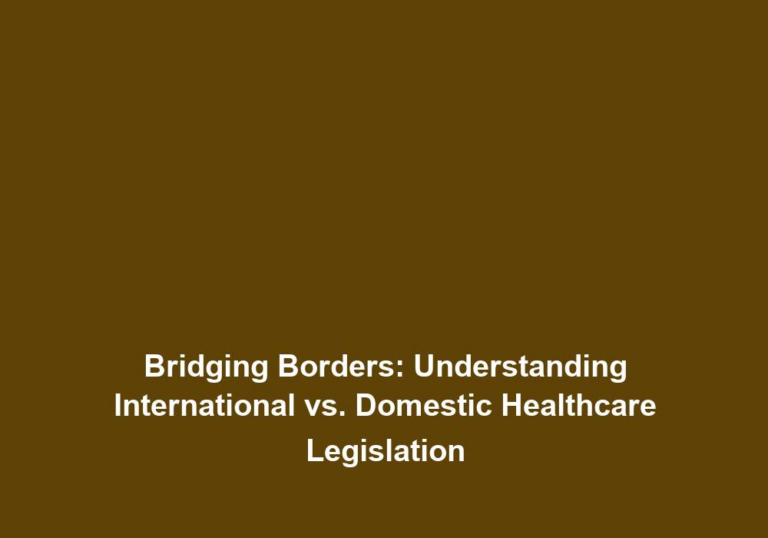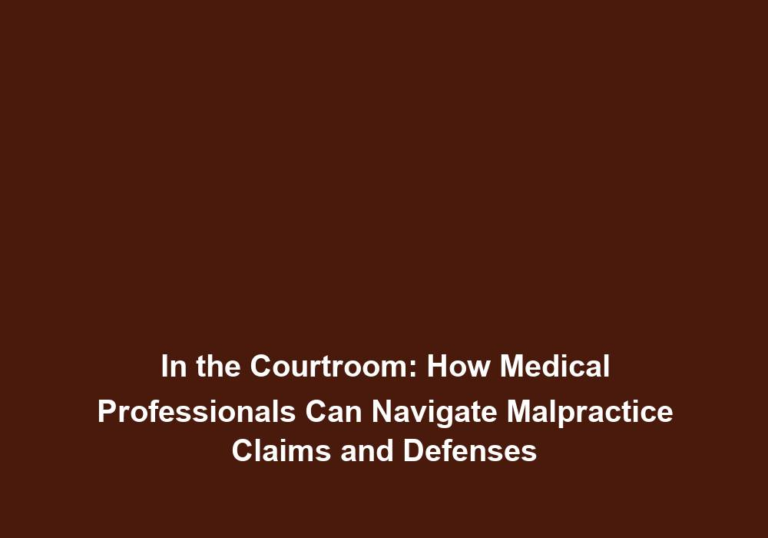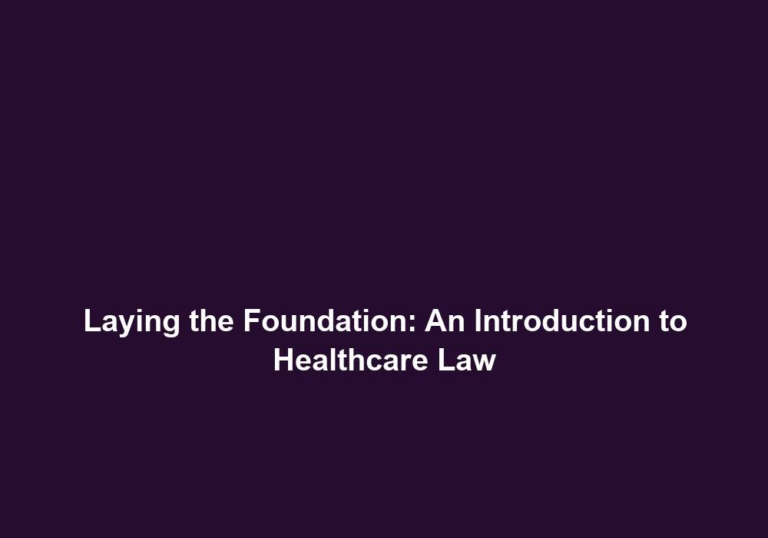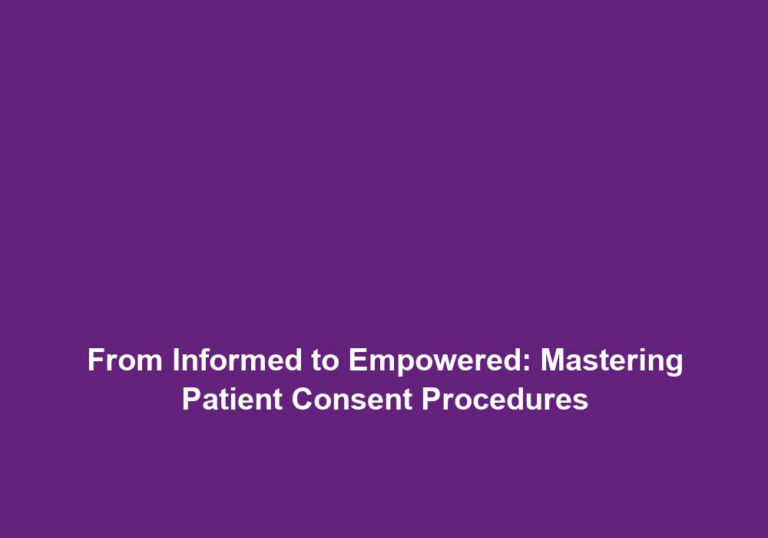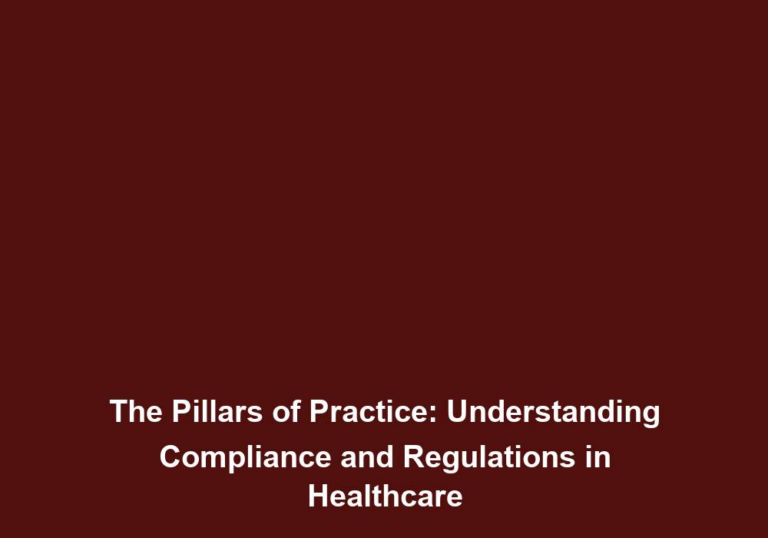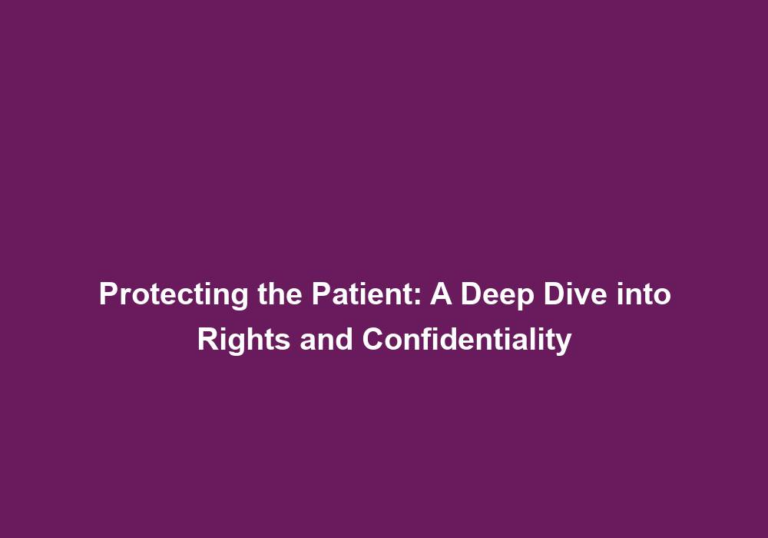Credentials in Care: The Role of Licensing and Certification in Healthcare
In the field of healthcare, licensing and certification are crucial components that ensure the competency and proficiency of healthcare professionals. These credentials provide necessary standards and guidelines that uphold the quality of care delivered to patients. Let’s delve deeper into the significance of licensing and certification in healthcare and understand their role in maintaining excellence in the industry.
Licensing in Healthcare
Licensing is a legal requirement imposed by regulatory bodies, such as state medical boards, to ensure that healthcare practitioners possess the necessary qualifications and skills to practice in their respective fields. These licenses are granted after an individual successfully completes the required educational and training programs, meets specific competency standards, and passes rigorous examinations.
Ensuring Competency and Patient Safety
Licensing serves as a means to evaluate and regulate healthcare professionals, guaranteeing that they possess the knowledge, skills, and abilities necessary to provide safe and effective care to patients. By implementing licensing requirements, regulatory bodies set a benchmark for competency, minimizing the risk of unethical or inadequate practice within the healthcare field.
In order to obtain a license, healthcare professionals must demonstrate their understanding of medical procedures, protocols, and best practices. They are also required to showcase their ability to handle emergency situations and make critical decisions that prioritize patient safety. Licensing helps to ensure that healthcare professionals have the necessary competencies to diagnose and treat medical conditions accurately, reducing the likelihood of medical errors and improving overall patient outcomes.
Standardizing Professionalism
Licensing also plays a critical role in maintaining professionalism within the healthcare industry. It ensures that professionals operate within defined ethical boundaries and adhere to established codes of conduct. By upholding these standards, licensing safeguards the reputation and integrity of the healthcare profession as a whole.
In addition to clinical skills, licensing also emphasizes the importance of professionalism and ethical behavior. Healthcare professionals must maintain patient confidentiality, respect cultural diversity, and demonstrate empathy and compassion in their interactions. These standards of professionalism not only instill trust in patients but also contribute to a positive healthcare environment that promotes collaboration and effective communication among healthcare teams.
Accountability and Legal Protection
Another crucial aspect of licensing is the accountability it brings to healthcare professionals. Licensing creates a legal framework that holds practitioners responsible for their actions and provides patients with the means to seek recourse in cases of malpractice or negligence. This accountability promotes transparency and reinforces the trust between patients and healthcare providers.
Licensing ensures that healthcare professionals are aware of their legal and ethical responsibilities towards their patients. It emphasizes the importance of informed consent, proper documentation, and accurate record-keeping. In the event of any misconduct or negligence, licensing provides a mechanism for patients to file complaints and seek legal redress, ensuring that healthcare professionals are held accountable for their actions.
Certification in Healthcare
While licensing primarily focuses on ensuring minimum competency standards, certification allows healthcare professionals to acquire specialized knowledge and skills within a particular area of practice. Certification is voluntary and acts as an additional credential that demonstrates a higher level of expertise and dedication to a specific field.
Specialization and Expertise
Certification allows healthcare professionals to expand their knowledge and gain expertise in a specific area of healthcare. It showcases their commitment to continuous learning and professional growth. By pursuing certifications, healthcare professionals can enhance their career opportunities and provide enhanced care within their chosen specialties.
Certification programs offer healthcare professionals the opportunity to delve deeper into a specific field of interest and acquire advanced skills. These programs often involve extensive training, examinations, and practical experience to ensure that professionals possess the necessary expertise to excel in their chosen specialties. By obtaining certifications, healthcare professionals demonstrate their dedication to providing the highest quality of care and staying at the forefront of advancements in their respective fields.
Quality Assurance
Certification programs are often designed and administered by professional organizations or certifying bodies that maintain rigorous standards. These programs validate the proficiency of healthcare professionals in their respective specialties, ensuring that they possess the latest knowledge and skills required to deliver high-quality care. Certification acts as a mark of excellence, assuring patients and employers of the practitioner’s competence.
Certification programs assess healthcare professionals’ ability to apply their knowledge and skills effectively in real-world scenarios. They often involve case studies, practical examinations, and ongoing assessments to ensure that professionals can deliver evidence-based care that meets industry standards. By obtaining certifications, healthcare professionals demonstrate their commitment to maintaining the highest quality of care and continuously improving their skills to benefit their patients.
Continuing Education and Professional Development
Certification programs often require healthcare professionals to engage in continuing education and ongoing professional development. These requirements help professionals stay updated with the latest advancements in their fields, ensuring that they provide evidence-based care to patients. By promoting continuous learning, certification programs contribute to the overall improvement of healthcare practices.
Continuing education requirements associated with certifications help healthcare professionals stay abreast of the latest research, technologies, and treatment modalities within their chosen specialties. These programs often involve attending conferences, workshops, and online courses that provide professionals with opportunities to expand their knowledge and network with peers. By actively participating in continuing education, healthcare professionals can enhance their clinical skills, stay informed about emerging trends, and ultimately deliver better care to their patients.
The Interplay between Licensing and Certification
Licensing and certification in healthcare are not mutually exclusive; rather, they often complement each other to ensure comprehensive quality assurance. While licensing focuses on establishing minimum competency standards for general practice, certification allows practitioners to demonstrate their expertise in specialized areas.
Strengthening Professional Profiles
Combining both licensing and certification can significantly strengthen the professional profile of healthcare practitioners. Possessing a valid license denotes the necessary foundational knowledge and skills required for practice, while certification showcases additional expertise and dedication to a specific field. This dual recognition enhances the professional reputation and credibility of healthcare professionals.
By holding both a license and a certification in a particular specialty, healthcare professionals can demonstrate their comprehensive skill set and dedication to delivering high-quality care. This combination not only validates their competency in general practice but also highlights their specialized knowledge and expertise. Employers and patients can have greater confidence in healthcare professionals who have obtained both a license and relevant certifications, knowing that they have met rigorous standards and are committed to continuous professional development.
Meeting Evolving Industry Demands
As the healthcare industry continues to evolve, new technologies, treatments, and best practices emerge. Licensing and certification adapt to these changes by establishing updated competency standards and ensuring that healthcare professionals remain well-informed and proficient. This adaptability helps meet the ever-changing demands of the industry, ultimately benefiting patient care.
Licensing and certification bodies continuously review and update their requirements to align with the latest advancements and industry best practices. They collaborate with industry experts, research institutions, and healthcare organizations to identify emerging trends and incorporate them into their standards. This proactive approach ensures that healthcare professionals are equipped with the knowledge and skills needed to address evolving patient needs and deliver the most effective care possible.
Conclusion
Licensing and certification play indispensable roles in maintaining excellence within the healthcare field. Licensing establishes minimum competency standards, ensuring that healthcare professionals possess the necessary qualifications to practice safely. Certification, on the other hand, allows professionals to showcase their specialized knowledge and skills, promoting continuous learning and enhancing patient care. The interplay between licensing and certification ensures that healthcare professionals meet evolving industry demands and uphold the highest standards of professionalism, ultimately benefiting both practitioners and patients alike.


